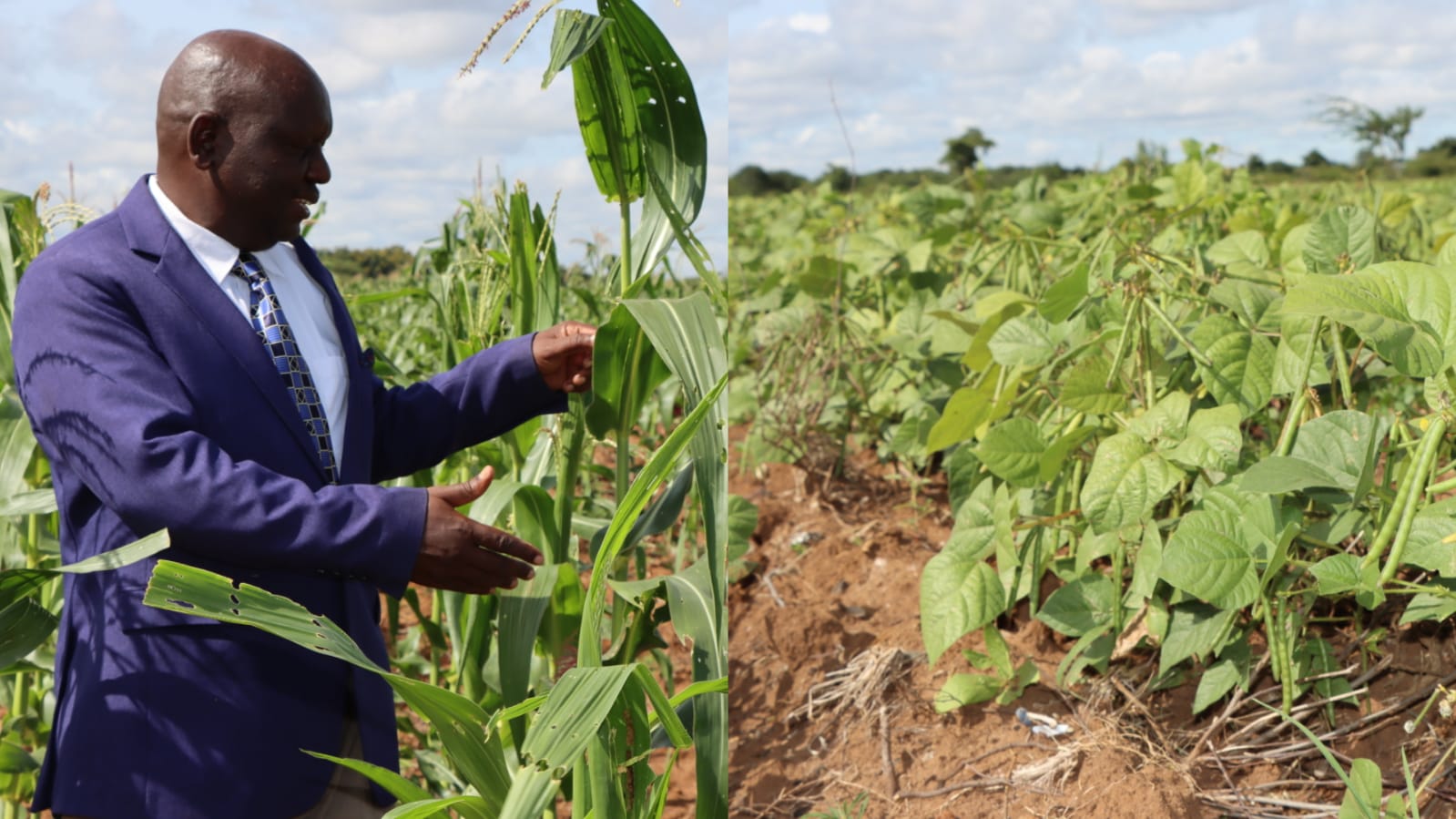 Masinga Boys' Principal Dr. Ben Ngatho at the School Farm. Photo By Andrew Mbuva.
Masinga Boys' Principal Dr. Ben Ngatho at the School Farm. Photo By Andrew Mbuva.
By Andrew Mbuva
Running a government school in Kenya has become increasingly challenging in recent years. With persistent delays in the disbursement of capitation funds, financially strained parents, and hungry suppliers, school principals across the country are navigating their toughest times yet.
Once considered a prestigious position, being the head of a public school is now viewed by many as a daunting, thankless task.
Faced with these harsh realities, many school heads have been forced to think outside the box to keep their institutions afloat. One such institution is Masinga Boys' Secondary School in Masinga Subcounty, Machakos County.
Blessed with a vast expanse of land, the school has earmarked 40 acres for farming, an initiative aimed at ensuring food security and generating income to support needy students.
The ambitious agricultural project was launched last year under the leadership of the current principal, Dr. Ben Ngatho, who says the initiative is already bearing fruit.
"We decided to begin farming last year. This year, we have utilized 20 acres and plan to expand to 40 acres progressively. The food we grow will not only feed the school but also support bursaries for students whose parents are unable to pay school fees," Dr. Ngatho told Soo TV during a recent visit to the farm.
According to the principal, the school expects to harvest at least 100 bags of maize and 20 bags of greengrams this season from land that was previously used for communal grazing.
"This land was once used by the local community for grazing. We had to engage the area Chief to ask them to vacate, after which we embarked on farming," he explained.
To further increase the school’s income, Dr. Ngatho revealed plans to diversify into horticulture, including crops like onions, cabbages, tomatoes, and carrots—products that can be sold to generate revenue.
However, he noted that this next phase will require irrigation, and called upon well-wishers to assist in sinking a borehole to support farming on up to 10 acres.
"The most basic need in any school is food. Once we are food secure and teachers are paid by the Teachers Service Commission, we can then stretch the little money we receive from the national government to keep the school running," he said.
The initiative has also provided an innovative way for parents who cannot afford school fees to contribute. Many now work on the school farm in exchange for their children’s tuition.
Academically, the school is also on an upward trajectory. In last year’s KCSE, Masinga Boys' Secondary School achieved a mean score of 6.5, with 115 out of 238 students qualifying for university.
"We are a school with a vision. We want to grow academically, increase our enrollment, and provide a conducive learning environment for all our students," Dr. Ngatho concluded.